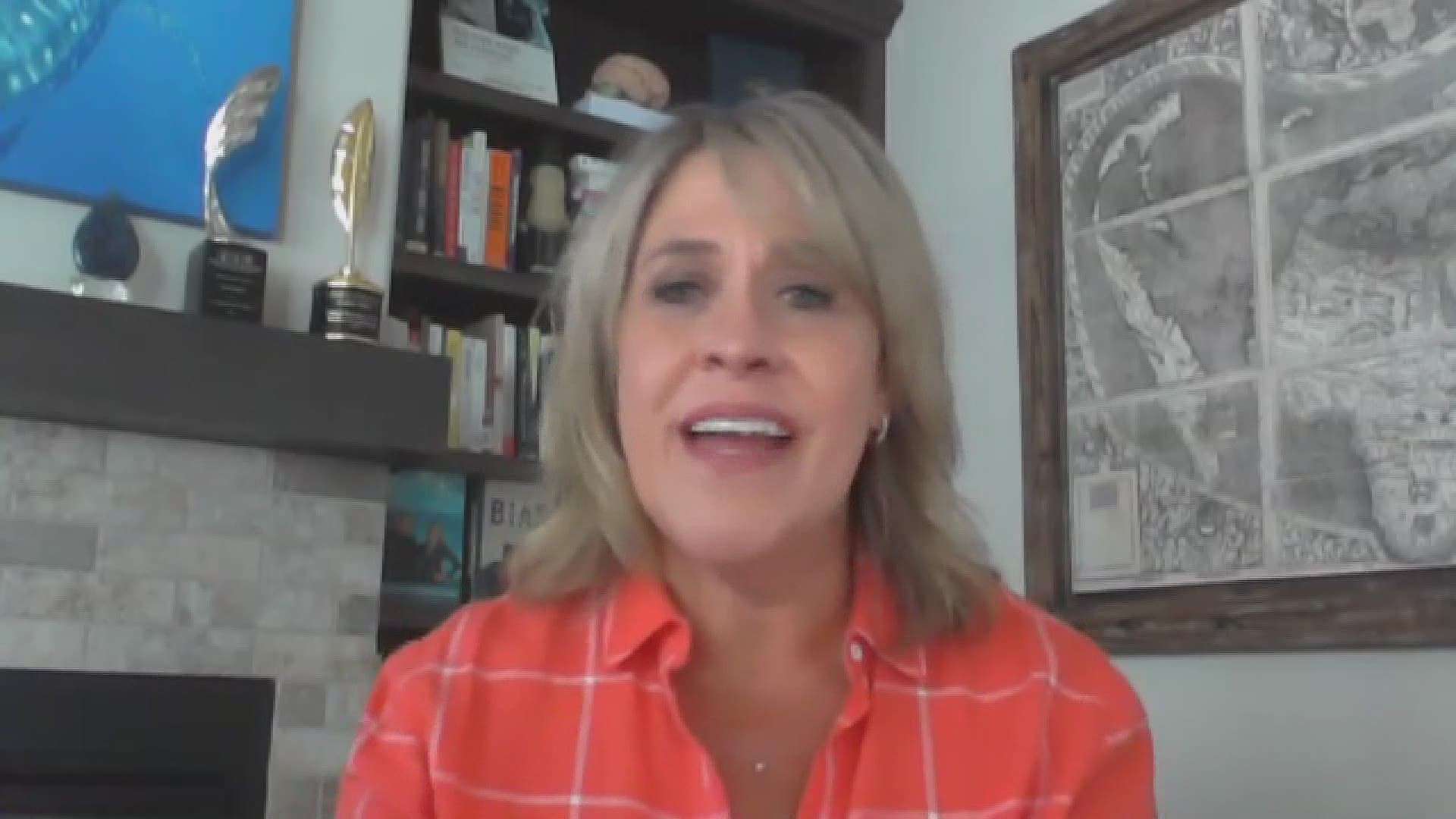PORTLAND, Maine — Whether it's through social media or in-person at shops and restaurants, battles have been brewing between those who wear masks - as recommended by the CDC - and those who don't. Before you get pulled into an argument at the grocery store, or with your aunt on Facebook, here is some helpful advice on broaching these topics.
Carol Barkes is a conflict resolution expert and mediator based in Idaho; she joined me through Zoom to talk about why our conversations lately have gotten so heated. Turns out, it actually has to do with our "lazy brains."
"The first thing is to stop and consider what we are going to be dealing with. Is this a one and done relationship with someone that we're maybe just experiencing in a store or at a restaurant; or is it somebody that we see in our lives regularly? Our responses are going to vary depending on who we are interacting with," says Barkes. "Maybe if it’s somebody in a store, we don’t say anything. Maybe we just go down a different aisle. Or maybe we don’t visit that business until they change their policy and we feel safer about it."
Barkes says it's important to note that these conversations aren't meant to completely change someone's view, they're meant to have peaceful and safe interactions with others. So if you're looking for a fight online, know it might not amount to much. "Oftentimes people on social media are just looking for a monologue not a dialogue," explains Barkes; which makes perfect sense, if you think about what you or your friends tend to share online.
"But in any of these hot topics that are going on in the news right now, the solution is to really seek to understand the other person before we try to get them to understand our position," Barkes says. "So I really want to listen to your views and everything that you have to think on this topic, and then maybe somewhere in the things you say I’ll find those little opportunities where we actually have commonalities, and that gives me some room to take this conversation forward. Until I let you unpack all of your baggage, you’re not going to be able to hear me, so I want to listen first; speak last."
Maybe someone has a legitimate reason for why they feel the way they feel; or maybe they know something you don't; which leads to this: do your research, even if it doesn't support your thinking. "The problem with our brains is that 98% of our thoughts are unconsciously driven and our brains are really kind of lazy, so we look to find the things that support what we already believe," says Barkes. "If we have pseudoscience or bad science, we’re going to look for the things that support that. Unfortunately science is moving at a really fast pace right now so some of the things we thought were scientifically sound, no longer are. So getting yourself to be willing to recognize that what you might’ve believed might be outdated, is one of the first steps for you and others to enter into meaningful conversations."
You can't have a meaningful conversation if your tone is accusatory. As annoyed or upset as you might be, don't attack. "Our brains are always fear-based, but right now we are dealing with even more fear. When we don’t have all of the dots connected our brains go to this negative evil plot twist, so when we are dealing with things that are health risks or seem to be freedom and right risks, our brains super hyper escalate all of that. When we start accusing people of things, our brains sort of shut down and we go into that fight or flight mode, and I no longer can hear anything you say I am just at war with you and I’m either going to fight with you or I’m just going to exit the conversation. So the more we accuse people or attack them or blame them for being reckless, the less they can hear us."
To learn more about Carol Barkes, CPM, MBA - click here.
RELATED: Mills signs Executive Order mandating mask enforcement, extends state of emergency through August 6

